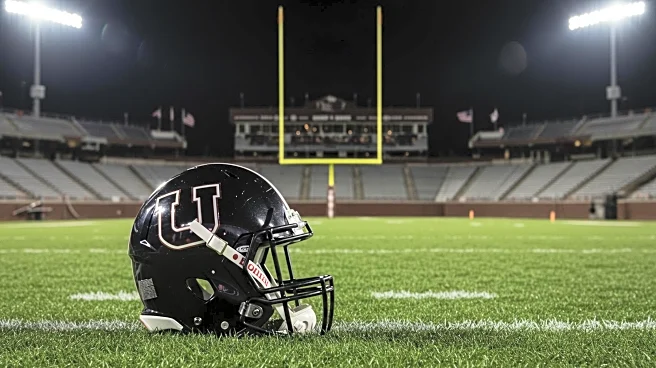What's Happening?
The University of Michigan has been fined by the NCAA Committee on Infractions due to sign stealing in college football. The penalties include a significant fine and the loss of two years of postseason football revenue. However, Michigan avoided more severe punitive measures such as a postseason ban. The university plans to appeal the decision, seeking to mitigate the financial impact and address the allegations. This development follows a broader investigation into sign stealing practices within college football, raising questions about competitive integrity and compliance with NCAA regulations.
Why It's Important?
The NCAA's decision to penalize Michigan for sign stealing underscores the importance of maintaining competitive integrity in college sports. The penalties could have significant financial implications for the university, affecting its athletic programs and overall budget. This case highlights the challenges institutions face in ensuring compliance with NCAA rules and the potential consequences of violations. It also serves as a warning to other universities about the risks associated with sign stealing and similar practices. The outcome of Michigan's appeal could set a precedent for how the NCAA handles similar cases in the future, influencing policy and enforcement strategies.
What's Next?
Michigan's appeal of the NCAA penalties will be closely watched by stakeholders in college sports, including other universities, athletic conferences, and regulatory bodies. The appeal process may involve negotiations and discussions about the severity of the penalties and the evidence supporting the allegations. Depending on the outcome, Michigan could face further scrutiny or adjustments to its athletic programs. The case may also prompt other universities to review their compliance practices and take proactive measures to prevent similar violations. Additionally, the NCAA may consider revising its policies and enforcement mechanisms to address sign stealing and related issues more effectively.









